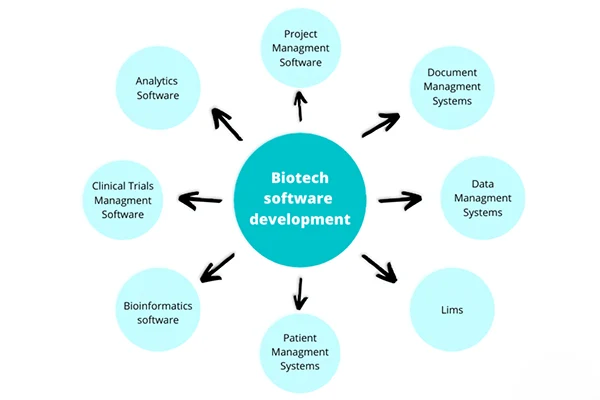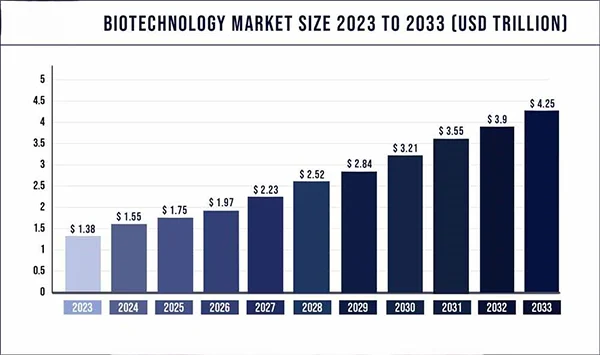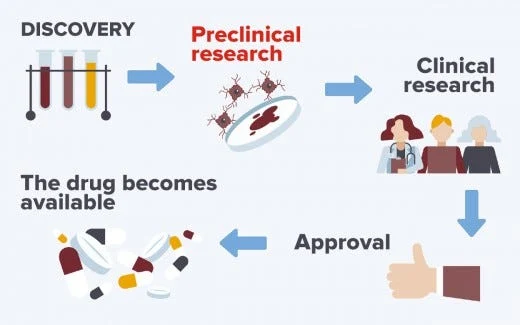Coding Life: Biotech Software for Precision Medicine
The world is at a pivotal chapter in the history of medicine. Today, it is easier to decode DNA at rates faster and more accurate than ever. Besides, there are advancements in precision medicines.
Still, personalized medicine has a long way to go, specifically in large parts because there is a missing key component. At present, we can say that we’re in dire need of biotech softwares.
The brightest minds in engineering and computer science are all set to apply their skill sets to cause and change the world. Also, learn about Totally Science GitLab in this guide.
This has precisely transformed the way researchers and clinicians view the diagnosis, diagnosis, and treatment of diseases. Possible by adopting methods for interpreting biological data with the highest accuracy and efficiency.
Here, you’ll get to discover how biotech softwares shows good signs for precision medicine in terms of genomic analysis, drug discovery, and development as well as in clinical decision support systems.
The Role of Biotech Software

In the field of biotechnology, computer science is relevant in many ways, especially concerning bioinformatics. With the abilities of computer science, it is now possible to visualize, simulate, and analyze biological and genetic information.
As you can see pharmaceutical giants, biotech startups, and academic institutions are also working in the field of personalized medicine.
Biotech software combining data interpretation and analytic tools based on genomic, proteome, and imaging sources, shows how the human body functions on a molecular level.
How is this possible? To answer, such software solutions are powered by advanced algorithms, machine learning methods, and big data analysis.
What happens is that it maps chemicals onto protein structures. Then, AI and machine learning are utilized to predict disease from diagnostic information and finally develop new therapies.

Statistics:
Last year in 2023, the global biotechnology market was estimated at USD 1.38 trillion. Now, from 2024 to 2033, it is expected to be worth around USD 4.25 trillion.
Genomic Analysis
Back then, in 1990, the Human Genome Project set out to sequence all 3 billion base pairs in human DNA.
Genomic analysis helps investigators achieve their research objectives and yes it is one of the major pillars of precision oncology. Simply put, this brought relevant findings into routine clinical practice.
Biotech software platforms allow clinicians and researchers to decipher genomic data, pinpoint disease-causing mutations, and design personalized treatments. These are tailored based on an individual’s genetic makeup.
As an outcome, clinicians lead to discover genetics role in particular diseases and treatments. To serve medical purposes, biotech software offers a full range of both short-read (Illumina) and long-read (Pacific Biosciences) next-generation sequencing along with gene expression, genotyping, and DNA methylation applications.
Drug Discovery and Development

The exceptional combination of biotech and IT accelerates rapid research and development in the life sciences. This pair comes together to analyze data from scientific literature, clinical trials, and other sources.
Meanwhile, it fastens the identification of potential drug targets and the effectiveness of new treatments and drugs.
Behind the scenes, all these are possible by screening compound libraries, predicting drug-target interactions, and optimizing lead compounds to achieve effectiveness and safety goals.
Fast Fact:
As per the report released by Grand View Research, every four out of ten new drugs are currently based on biotechnology.
Clinical Decision Support Systems
The software for biotechnology represents a paradigm shift in healthcare today. It includes a variety of tools and computerized as well as non-computerized interventions to provide personalized recommendations to clinicians.
Note that, the recommendations are based on a patient’s individual characteristics and medical history.
Let’s understand with an example:
In case of anything serious or prolonged chronic disease, treatment providers can make the most of biotech softwares to recommend a treatment or clinical trial that too based on a patient’s genetic data, current state of education, medical literature, and other factors.
Challenges and Future Directions
Above all the promises or advancements, personalized medicine faces several challenges that need to be addressed.:
- One of the major concerns has to be personal data protection standards of its validation and approval.
- When interpreting the data and modeling it, the intricacies of biological systems and the diversity in human populations remain the most difficult to deal with.
- The cost of genetic testing and targeted therapies is a matter of concern.
As we continue to look ahead to the future, more innovative biotechnology applications in personalized medicine are yet to come.
For example, multi-omics data integration is set to be developed to combine and connect molecular information. Resulting in up-to-the-mark predictive capabilities that let clinical professionals go with the best therapeutic options and witness improved clinical outcomes.
Even, AI and machine learning in genetic data analysis hold great value in order to identify therapeutic targets and novel drug development.
Conclusion
We can say that the journey from the lab to code is worth exploring. As you can see throughout the article, there has been a profound impact that coding has had in this realm.
It travels from understanding the language of life to analyzing big data. Biotech software for precision medicine has become the cornerstone of innovation in science and medicine.
Since treatments are personalized to each individual’s unique genetic makeup, biotechnology can lead to higher efficacy and minimal side effects.
On that note, envision a healthier, more connected, and technologically empowered world!
Hi, All!
